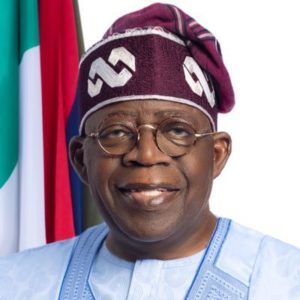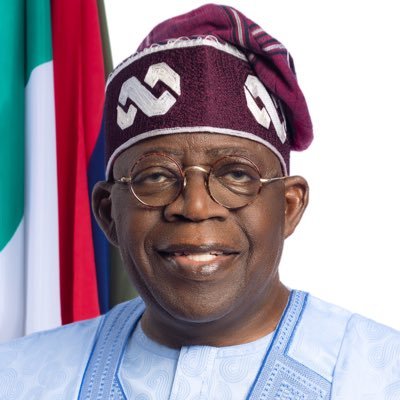
By Adeyemi Adekunle
Nigeria’s strides in climate change and energy transition continue to draw significant global attention, and at the Abu Dhabi Sustainability Week Summit, the country’s efforts were showcased at the highest level. Rep. Sir Sam Ifeanyi Onuigbo, who serves as Chairman of the Security, Climate Change and Special Interventions Committee on the Board of the North East Development Commission (NEDC), applauded President Bola Ahmed Tinubu for taking Nigeria’s leadership in climate sustainability to greater heights. Onuigbo, who is recognized for sponsoring Nigeria’s landmark Climate Change legislation, commended President Tinubu for positioning the country as a key player in global climate action during the summit.
Speaking in an interview on Wednesday, Onuigbo expressed his deep satisfaction with the remarkable progress Tinubu has made in pushing the climate agenda, not only for Nigeria but for the African continent. Onuigbo’s remarks followed Tinubu’s stirring address to world leaders at the Abu Dhabi Sustainability Week Summit, which included the prestigious 15th Session of the International Renewable Energy Agency (IRENA) Assembly. Tinubu made a compelling argument that the battle against climate change is not just an environmental imperative, but a critical economic opportunity for Africa and the global community.
Tinubu’s speech was a resounding call to action that inspired several dignitaries, particularly when he underscored that to succeed, collaboration and innovation must be central in the global fight against climate change. He outlined Nigeria’s growing role in both mitigating climate change and fostering renewable energy through innovative strategies such as funding for green projects, ensuring the sustainable development of the energy sector, and advancing environmental initiatives. The Nigerian delegation to the summit emphasized this spirit of innovation that underpins Nigeria’s climate change and energy transition efforts, with a special focus on inclusivity, resilience, and innovation.
Onuigbo expressed joy at how the President’s remarks resonated with participants at the summit, particularly with the global energy and climate change community. One of the President’s key declarations at the summit—that climate action is not only necessary to safeguard the environment but also a vital economic opportunity—was hailed by leaders from various countries. The echoing sentiment at the summit was that achieving sustainability requires an urgent shift in the global energy landscape, and Tinubu’s speech highlighted Nigeria’s commitment to these goals.
While discussing the foundations of Nigeria’s sustainability efforts, Onuigbo referenced the country’s breakthrough achievements in energy and climate policy. He pointed out how Nigeria, in 2017, became the first African nation to initiate funding for green projects through sovereign green bonds, establishing a pathway toward funding eco-friendly investments.
This commitment has continued under President Tinubu’s administration, which is strengthening Nigeria’s leadership role in addressing the continent’s energy and climate crisis. Tinubu’s approach also reflects his broader stance on regional cooperation and helping the world meet the shared goal of net-zero emissions by 2050.
Onuigbo, who participated in several panel discussions at the summit, echoed the sentiments shared at the event. One such discussion revolved around the imperative of leveraging innovation to achieve climate resilience and drive inclusive sustainable economic development.
He pointed out that through initiatives like Compressed Natural Gas (CNG), Eco Cities, and reforms in the energy sector through the Electricity Act of 2023, Nigeria is setting itself on a path toward a sustainable future. These policies reflect a broader ambition to transition to more efficient, renewable energy sources while maintaining national energy security.
Reflecting on his participation in the International Renewable Energy Agency’s (IRENA) Innovation Day Panel Discussion, Onuigbo shared insights from thought leaders on energy sector transformation. The discussions centered on how to harness technology, particularly in the power sector, to shape more resilient economies.
With speakers such as Asami Miketa, Head of Energy Transition Planning at IRENA, and Patrick Westman, Global Head of Strategy at ENGIE Energy Access, Onuigbo reaffirmed his confidence in Nigeria’s ability to drive energy transition through new innovations, financing models, and cross-sectoral collaboration.
Onuigbo also placed emphasis on Nigeria’s market potential, stating that the country has a youthful, well-educated workforce and significant resource wealth that could be leveraged for sustainable growth. “Things are looking up for Nigeria.
Under Tinubu’s administration, there is an enabling environment for bold initiatives, which presents promising opportunities for investors in the green economy,” he said, noting that Nigeria’s move towards low-carbon technologies is not just an environmental goal, but an economic one as well. His statement underscored that the nation’s energy reforms, paired with its dynamic young population, create an attractive landscape for investors, particularly in clean energy, sustainable infrastructure, and eco-entrepreneurship.
Onuigbo also highlighted the importance of fostering investment in start-ups, innovations, and other sectors of Nigeria’s economy as the nation continues to pursue green growth. By encouraging collaboration between the Nigerian government, businesses, and international investors, Onuigbo stated that Nigeria is preparing itself for future generations that will be more resilient to climate shocks, competitive in the renewable energy space, and robust in attracting sustainable foreign investments.




